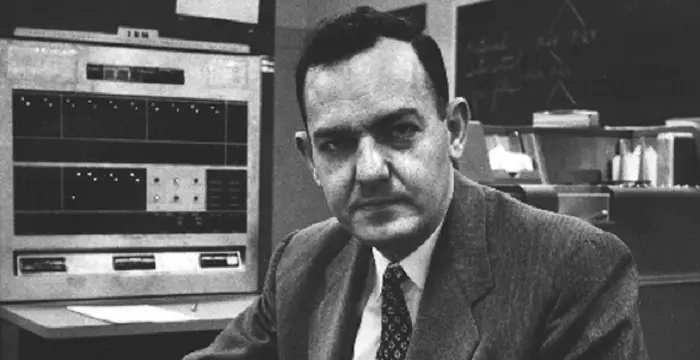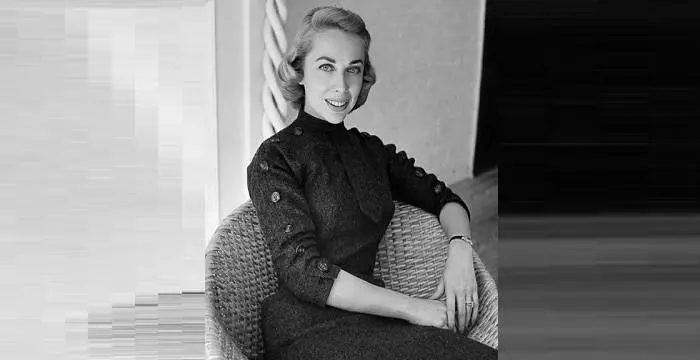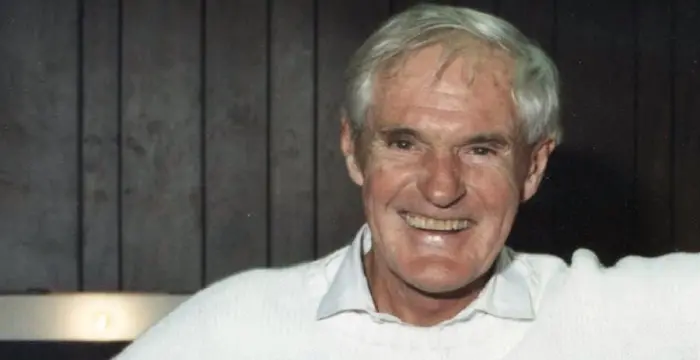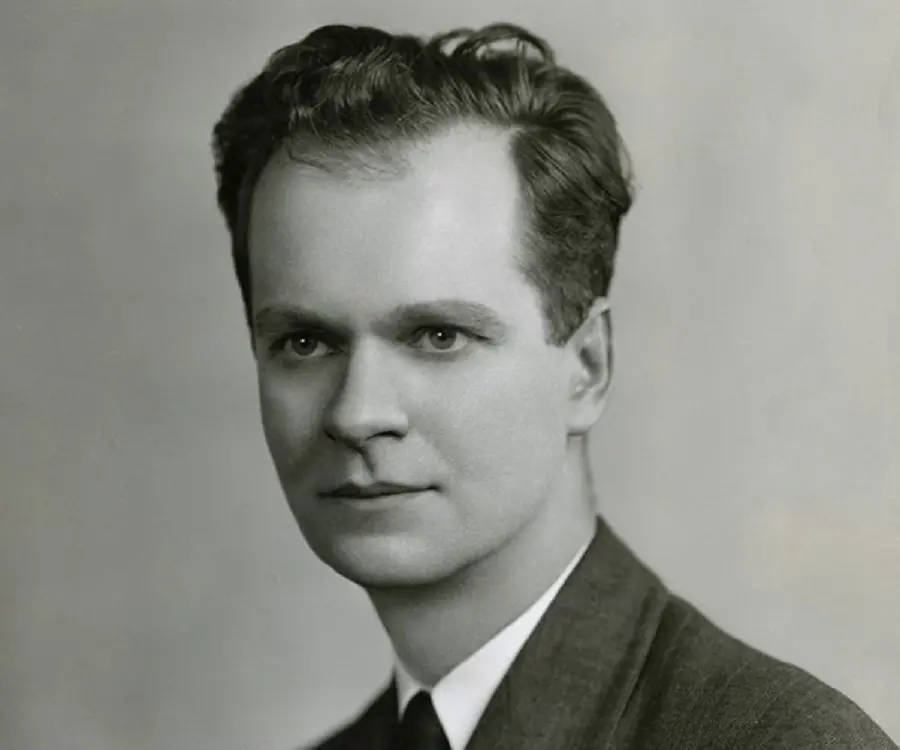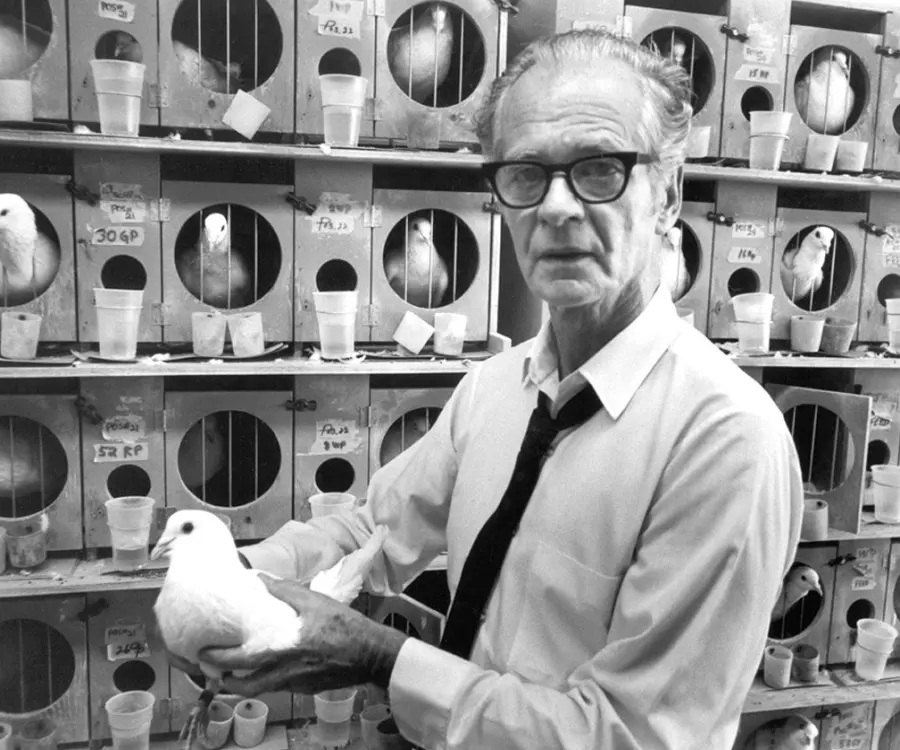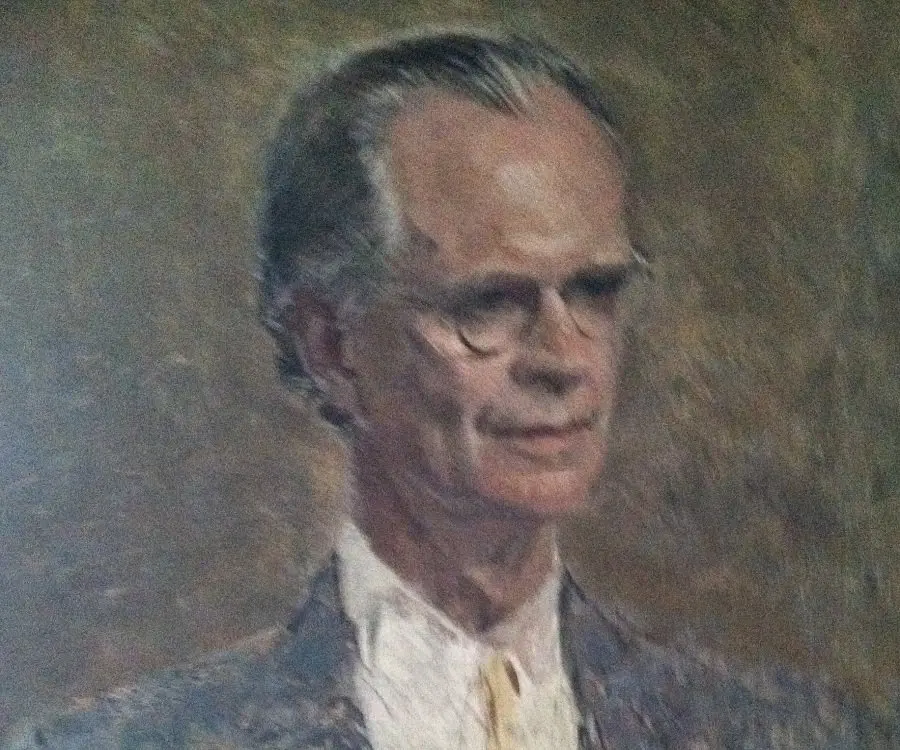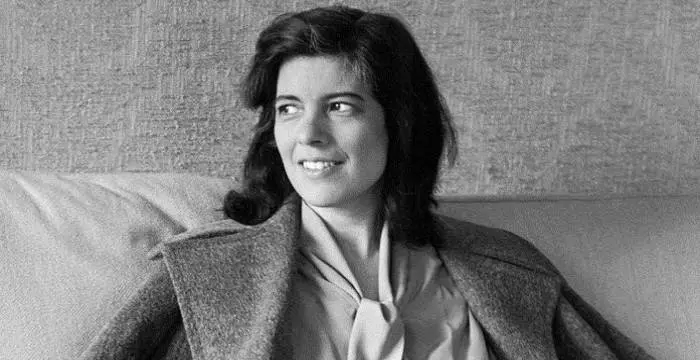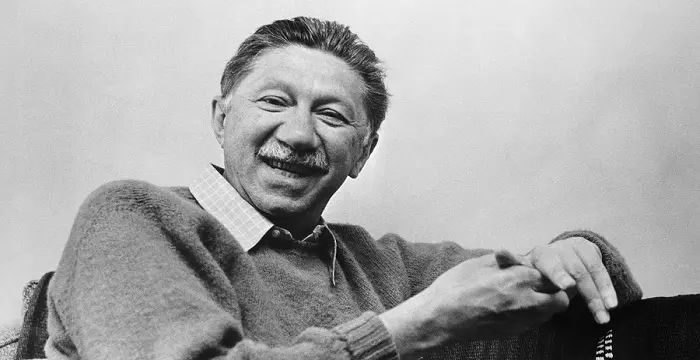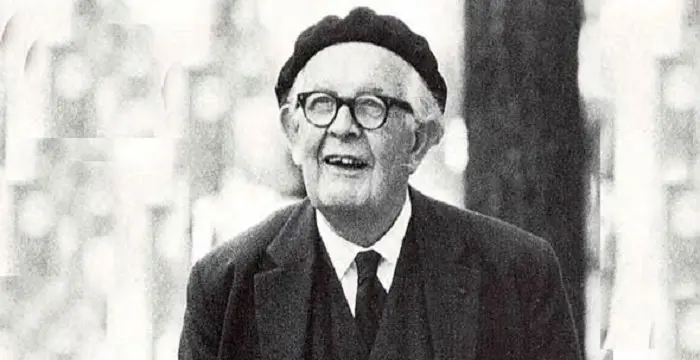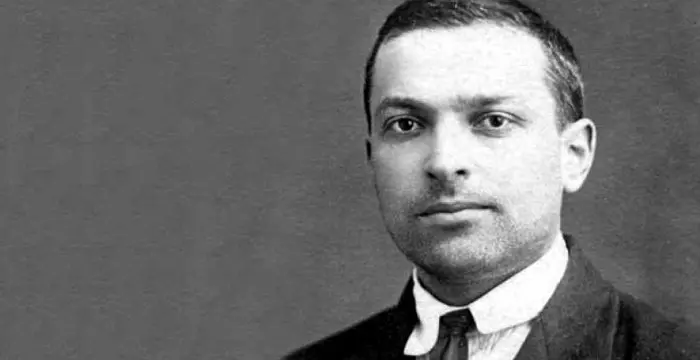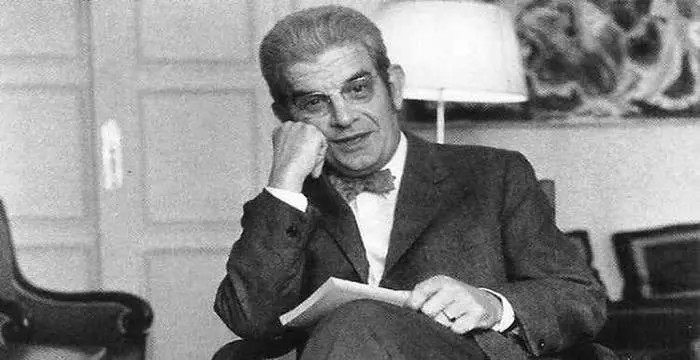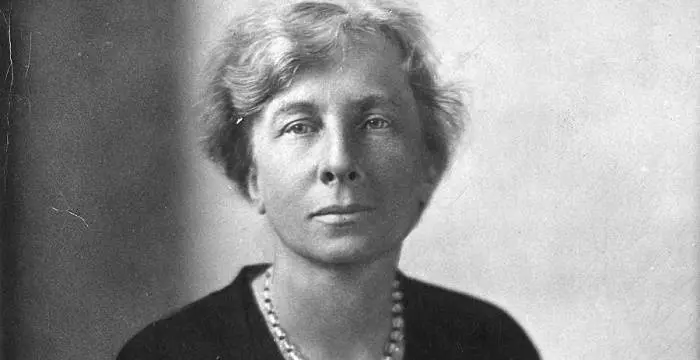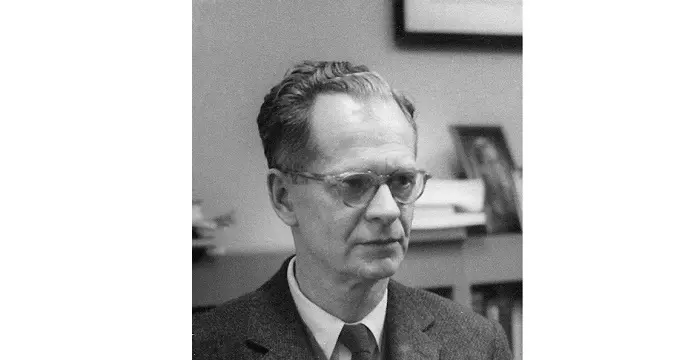
B. F. Skinner - Psychologists, Family and Childhood
B. F. Skinner's Personal Details
B.F
| Information | Detail |
|---|---|
| Birthday | March 20, 1904 |
| Died on | August 18, 1990 |
| Nationality | American |
| Famous | Harvard University, Intellectuals & Academics, Psychologists, Psychologists |
| Spouses | Yvonne Blue (m. 1936–1990) |
| Siblings | Edward |
| Known as | Burrhus Frederic Skinner |
| Childrens | Deborah (m. Buzan), Julie (m. Vargas) |
| Universities |
|
| Notable Alumnis |
|
| Birth Place | Susquehanna, Pennsylvania, United States |
| Religion | Atheist |
| Gender | Male |
| Father | William |
| Mother | Grace Skinner |
| Sun Sign | Pisces |
| Born in | Susquehanna, Pennsylvania, United States |
| Famous as | American psychologist |
| Died at Age | 86 |
// Famous Psychologists
Herbert Simon
Herbert Simon was an American political scientist, economist, sociologist, psychologist, and computer scientist. Check out this biography to know about his childhood, family life, achievements and other facts related to his life.
Joyce Brothers
Joyce Brothers was one of the most prominent psychologists and a television personality. Explore this biography to learn more about her childhood, work, achievements, life and timeline.
Timothy Francis Leary
Timothy Leary was a psychologist and lecturer who advocated the use of LSD. This biography of Timothy Leary provides detailed information about his childhood, life, achievements, works & timeline.
B. F. Skinner's photo
Who is B. F. Skinner?
Burrhus Frederic “B.F.” Skinner was a psychologist and social philosopher considered to be a pioneer in the field of behaviorism. He founded a separate school of psychology known as “radical behaviorism” which differed considerably from the other schools of psychology. He believed that living beings tend to repeat the actions which they believe give them favourable results. He called this the principle of reinforcement. He was an intelligent, creative, and independent minded individual who often found himself surrounded by controversy due to the nature of his works. He was of the view that free will was an illusion and vehemently denied that humans possessed any freedom or dignity. He was also an inventor who is credited to have invented the operant conditioning chamber which is used to study behaviour conditioning. He designed the air crib, a temperature and humidity controlled crib for taking care of babies. This proved to be his most controversial invention and he was heavily criticized for inflicting cruelty upon small babies. A prolific writer, he authored 180 articles and more than 20 books, the best known of which are ‘Walden Two’ and ‘Beyond Freedom and Dignity’. Throughout his life he had served as a professor in various colleges and left a profound impact on in the field of education.
// Famous Intellectuals & Academics
Bertil Gotthard Ohlin
Bertil Gotthard Ohlin was a famous Swedish economist. This biography profiles his childhood, family life & achievements.
Emily Greene Balch
Emily Greene Balch was an American economist, sociologist and pacifist who won the 1946 Nobel Peace Prize. This biography of Emily Greene Balch provides detailed information about her childhood, life, achievements, works & timeline.
Martin Buber
One of the greatest philosophers to have ever walked on earth, Martin Buber contributions to philosophy is a long-standing one. Explore all about his profile, childhood, life and timeline here.
Childhood & Early Life
Skinner was born in Pennsylvania to a lawyer father William and his wife Grace. He had a comfortable childhood and loved to invent things. He became an atheist at a young age.
He dreamed of becoming a writer and attended Hamilton College in New York with this goal in mind. However, he could not fit in at the college due to his intellectual attitude. He completed his B.A. in English literature in 1926.
He enrolled at Harvard University from where he received his M.A. in 1930.
He tried writing a novel after his graduation but was soon disillusioned with his literary skills. A chance encounter with John B. Watson’s ‘Behaviorism’ inspired him to shift his focus to the study of psychology.
Career
He received his PhD from the Harvard University in 1931 and served as a researcher till 1936.
While he was at Harvard he began working on building the operant conditioning chamber. Also known as the Skinner box, it is an apparatus used to study operant conditioning and classical conditioning in animals.
After leaving Harvard in 1936 he became an Instructor at the University of Minnesota. He was made an Assistant Professor in 1937 and Associate Professor in 1939. He remained in this position till 1945.
He was appointed as a professor in Indiana University in 1945 and was also chosen as the Chairperson of the psychology department. He left after serving there for three years.
He returned to Harvard University as a tenured professor in 1948 and taught there for the rest of his life.
He founded a separate school of psychology known as ‘radical behaviorism’. His psychological work is based on operant conditioning, and he believed that living organisms possess no free will and will repeat behaviour which gives them a favourable outcome.
He designed the teaching machine, a device to facilitate learning for a broad range of students. The machine could administer a curriculum of programmed instruction, provide students with questions and reward each correct answer in order to motivate them.
He wrote a work of fiction, ‘Walden Two’, a utopian novel in 1948. It was a controversial book as Skinner rejected the concepts of free will, spirit, and soul. He stated that human behavior is determined by genetic and environmental variables and not by free will.
In 1957, he published his book ‘Verbal Behavior’ in which he analyzed human behavior through the use of language, linguistics and speech. It was a purely theoretical work that was backed by little experimental research.
His very famous book ‘Beyond Freedom and Dignity’ was released in 1971. In this work he promoted his own philosophy of science and what he called cultural engineering. The book became a New York Times bestseller.
Major Works
He invented the operant conditioning chamber which helps in studying behaviour conditioning in animals by teaching them to perform certain actions in response to a particular stimuli. These chambers are used in a number of research fields to study animal behaviour and psychology.
His school of psychology, radical behaviorism, is applied in several diverse fields in the contemporary society like management, clinical practice, animal training and education. His theories also help in formulating therapies for autistic children.
Awards & Achievements
He received a gold medal from the American Psychological Foundation in 1971.
He was honoured with the Lifetime Achievement Award by the American Psychology Association for his tremendous contribution to the field of psychology in 1990.
Personal Life & Legacy
He married Yvonne Blue in 1936. The couple had two daughters, Julie and Deborah. His daughter Julie is an author and educator.
The B.F. Skinner Foundation was formed in 1988 with his support to promote the science founded by him. His daughter Julie is the president of the foundation.
He was diagnosed with leukemia in 1989 and died of the disease in 1990.
Trivia
The philosopher and cognitive scientist Noam Chomsky was his biggest critic.
The pigeon was his favourite experimental animal.
// Famous Harvard University
Bertil Gotthard Ohlin
Bertil Gotthard Ohlin was a famous Swedish economist. This biography profiles his childhood, family life & achievements.
Xi Mingze
Xi Mingze is the daughter of Chinese Leader Xi Jinping, Check out this biography to know about her birthday, childhood, family life, achievements and fun facts about her.
Susan Sontag
Susan Sontag is an American critical essayist, cultural analyst, novelist, political activist, filmmaker and playwright of international repute. Read on to find out more about her childhood, career, profile and timeline.
B. F. Skinner biography timelines
- // 20th Mar 1904Skinner was born in Pennsylvania to a lawyer father William and his wife Grace. He had a comfortable childhood and loved to invent things. He became an atheist at a young age.
- // 1926He dreamed of becoming a writer and attended Hamilton College in New York with this goal in mind. However, he could not fit in at the college due to his intellectual attitude. He completed his B.A. in English literature in 1926.
- // 1930He enrolled at Harvard University from where he received his M.A. in 1930.
- // 1931 To 1936He received his PhD from the Harvard University in 1931 and served as a researcher till 1936.
- // 1936 To 1945After leaving Harvard in 1936 he became an Instructor at the University of Minnesota. He was made an Assistant Professor in 1937 and Associate Professor in 1939. He remained in this position till 1945.
- // 1936He married Yvonne Blue in 1936. The couple had two daughters, Julie and Deborah. His daughter Julie is an author and educator.
- // 1945 To 1948He was appointed as a professor in Indiana University in 1945 and was also chosen as the Chairperson of the psychology department. He left after serving there for three years.
- // 1948He returned to Harvard University as a tenured professor in 1948 and taught there for the rest of his life.
- // 1948He wrote a work of fiction, ‘Walden Two’, a utopian novel in 1948. It was a controversial book as Skinner rejected the concepts of free will, spirit, and soul. He stated that human behavior is determined by genetic and environmental variables and not by free will.
- // 1957In 1957, he published his book ‘Verbal Behavior’ in which he analyzed human behavior through the use of language, linguistics and speech. It was a purely theoretical work that was backed by little experimental research.
- // 1971His very famous book ‘Beyond Freedom and Dignity’ was released in 1971. In this work he promoted his own philosophy of science and what he called cultural engineering. The book became a New York Times bestseller.
- // 1971He received a gold medal from the American Psychological Foundation in 1971.
- // 1990He was honoured with the Lifetime Achievement Award by the American Psychology Association for his tremendous contribution to the field of psychology in 1990.
- // 18th Aug 1990He was diagnosed with leukemia in 1989 and died of the disease in 1990.
// Famous Psychologists
Abraham Maslow
Abraham Maslow was a humanistic psychologist best known for his theory of self-actualization. This biography of Abraham Maslow provides detailed information about his childhood, life, achievements, works & timeline.
Felicitas Rombold
Felicitas Rombold is a German model, academic and the wife of actor Daniel Brühl. Check out this biography to know about her birthday, childhood, family life, achievements and fun facts about her.
Jean Piaget
Jean Piaget was a psychologist and philosopher known for his theory of cognitive development. This biography of Jean Piaget provides detailed information about his childhood, life, achievements, works & timeline.
Lev Vygotsky
Lev Vygotsky was a Soviet developmental psychologist, known as the "Mozart of psychology." This biography of Lev Vygotsky provides detailed information about his childhood, life, achievements, works & timeline
Jacques Lacan
Jacques Lacan was a French psychoanalyst and a psychiatrist, considered to be the most controversial psycho-analyst since Freud. Check out this biography to know about his childhood, family life, achievements and fun facts about him.
Lillian Moller Gilbreth
Lillian Gilbreth was an American psychologist hailed to be the first true industrial/organizational psychologist. This biography of Lillian Gilbreth provides detailed information about her childhood, life, achievements, works & timeline.
B. F. Skinner's FAQ
What is B. F. Skinner birthday?
B. F. Skinner was born at 1904-03-20
When was B. F. Skinner died?
B. F. Skinner was died at 1990-08-18
Where was B. F. Skinner died?
B. F. Skinner was died in Massachusetts, United States
Which age was B. F. Skinner died?
B. F. Skinner was died at age 86
Where is B. F. Skinner's birth place?
B. F. Skinner was born in Susquehanna, Pennsylvania, United States
What is B. F. Skinner nationalities?
B. F. Skinner's nationalities is American
Who is B. F. Skinner spouses?
B. F. Skinner's spouses is Yvonne Blue (m. 1936–1990)
Who is B. F. Skinner siblings?
B. F. Skinner's siblings is Edward
Who is B. F. Skinner childrens?
B. F. Skinner's childrens is Deborah (m. Buzan), Julie (m. Vargas)
What was B. F. Skinner universities?
B. F. Skinner studied at Harvard University, Hamilton College, Harvard University
What was B. F. Skinner notable alumnis?
B. F. Skinner's notable alumnis is Harvard University
What is B. F. Skinner's religion?
B. F. Skinner's religion is Atheist
Who is B. F. Skinner's father?
B. F. Skinner's father is William
Who is B. F. Skinner's mother?
B. F. Skinner's mother is Grace Skinner
What is B. F. Skinner's sun sign?
B. F. Skinner is Pisces
How famous is B. F. Skinner?
B. F. Skinner is famouse as American psychologist
